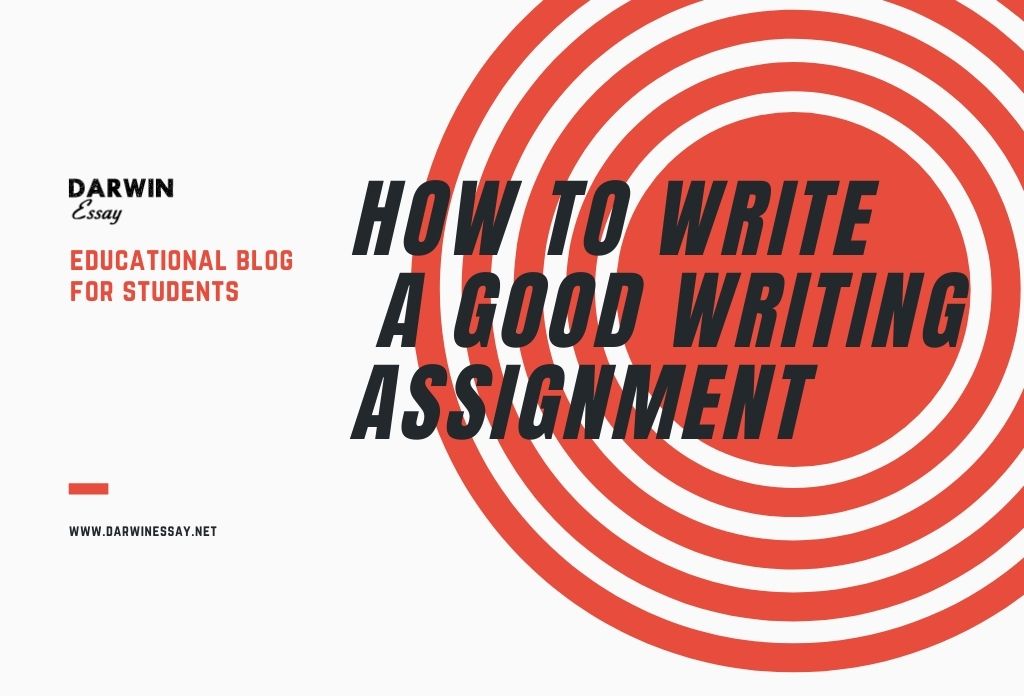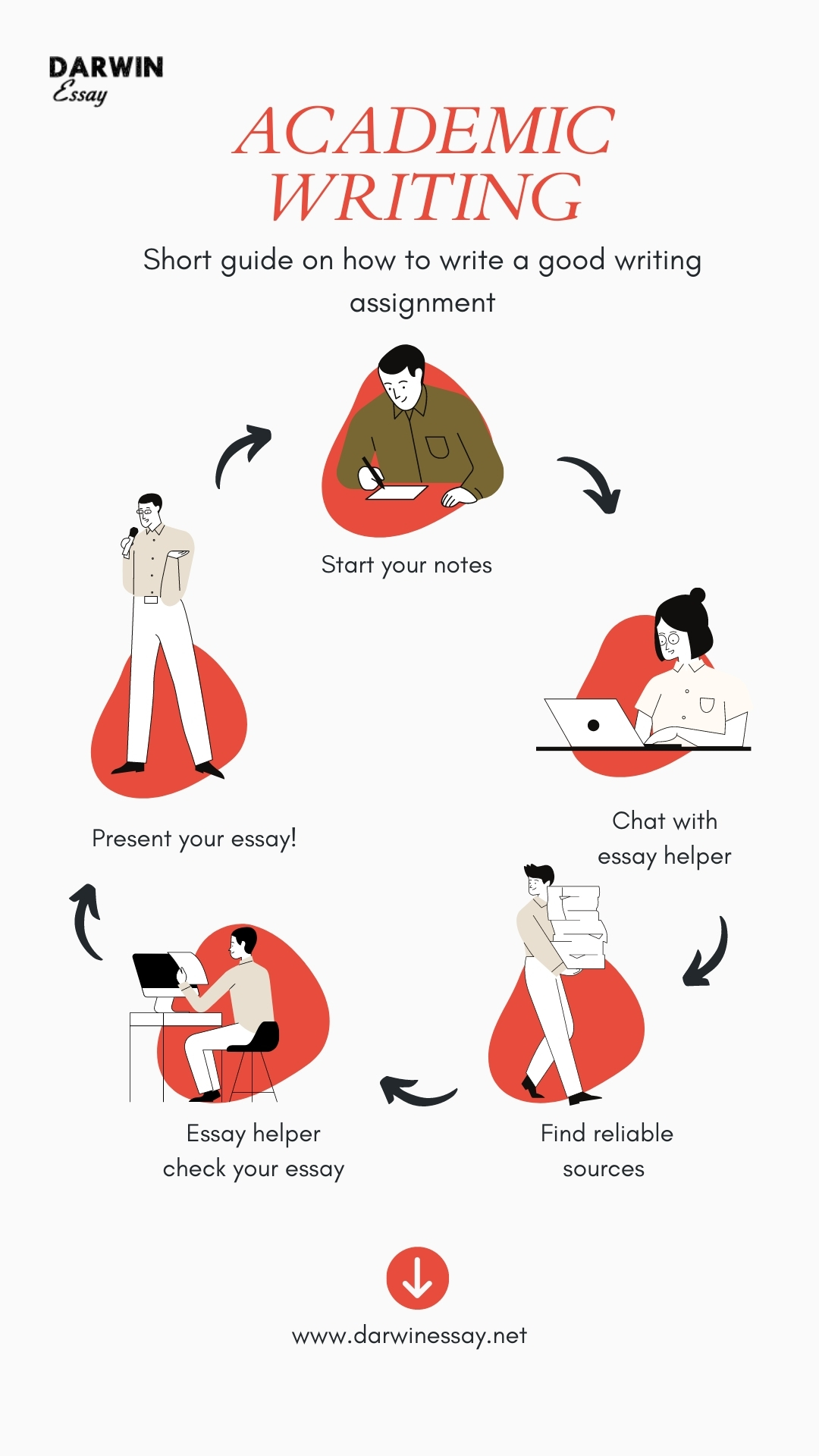Top tips for a good writing assignment
FOR STUDENTS
Sometimes student life becomes a real challenge and has many problems. One of them is writing academic assignments that requires analytical, writing and critical thinking skills. Students are constantly faced with writing various papers, including academic essays, research papers, coursework, and so on.

If you are wondering how to write a good writing assignment correctly and effectively, expert writing tips will definitely come in handy and help you get ahead.
If you are a teacher, you also need to understand the concept of a good writing assignment. Before entrusting its writing to your students, think about what result you expect. It will answer all your questions and help you explain your assignments to the students as clearly as possible.
There are five basic principles for successful academic writing for teachers:
– Define your primary goal, as well as the purpose of your papers. It should be linked to specific pedagogical goals.
– Consider the characteristics of your audience, the writing process and various aspects of the task.
-Write the context step by step, substantiating your thoughts and ideas.
– Highlight all the main elements of your academic assignment.
– Include grading criteria on the assignment sheet.
Writing should always meet pedagogical goals. Don’t be afraid to ask yourself questions to make the writing essay process even more efficient. The questions will help you ensure that you have set the right goal related to your teaching goals. For example, you may ask if your writing assignment makes sense or what the specific objectives will it meet.
The next principle of creating a good writing assignment is a well-thought-out step-by-step writing process. Many teachers agree and break the task into several manageable steps. Task design plays an important role in helping to give clear and understandable instructions to your students.
It may sound difficult, but it is actually the first step to writing a good writing assignment. State your goals as concretely and clearly as possible, and, of course, do not forget about the skills that will contribute to the final product.

Teachers should consider the specifics of their class, goals, and other aspects that will help improve the writing process and students’ writing and analytical skills. Also, remember to consider the rhetorical situation. What does it mean? The rhetorical situation is a process when you need to think through every last detail, namely the audience for which a writing assignment is created, as well as a specific genre and format of the document.
The student should not be limited to the idea that the teacher is their audience. They should be interested in the fact that their writing assignment that targets real readers. Additionally, try to explain to students how and why a particular genre or format of documents helps them communicate with the audience.
The success of a student’s assignment will depend on how well you explain it to them. Understanding the main elements of the task includes suggesting topics or reviewing the literature, as well as providing additional information about the relevant processes of writing, research, and so on. It is also recommended listing the grading criteria. Your clear explanations will allow students to understand better the purpose of the task and its challenge, which will ensure the best results and academic success.
For teachers, writing assignments involve responding to or interpreting other texts. Obviously, if you ask your students to write an academic assignment, you are doing so with a specific purpose and expect a particular result. Mostly common to all good writing assignments are the following:
– Ask your students to write about specific, not theoretical or abstract situations.
-Help students practice their writing and stylistic skills.
– If possible, provide students with a specific context for writing, as it plays a significant role for them. First of all, it means that a writing assignment has a goal that they must achieve.
Creating effective writing assignment
If you want to make life easier for your students and really help them achieve their academic goals in studying, the above tips are just vital for you. In addition, it is necessary to mention other tips that also need to be kept in mind:
– In such situations, everything depends on the choice of the teacher. Listen to your inner voice and think about what you really want. Maybe you want students to compare or describe something? Or perhaps you are more interested in generalization and want students to do it? Discuss this with your students and advise if necessary.
– Clearly define the requirements for a writing assignment. For example, these can be things like the genre (essay or letter), text length, documentation, introduction, evaluation criteria. Don’t forget about the deadline that students must meet. Indicate your requirements to make the tasks as clear to the students as possible.
Take time to discuss this assignment with your students, paying attention to the number of words, the length of the text, the keywords that may help them choose the right strategy in the writing process. They need to understand what you expect from them: analysis, comparison, generalization or maybe contrasting. Besides, make sure you do everything right and that your students clearly understand your intentions and the purpose of your writing assignment. In this case, the successful writing of this task is guaranteed.

Good writing assignments encourage students’ engagement with the course materials and interest them in developing their critical and analytical thinking, which helps them learn all the necessary information and many useful facts. Writing assignments allow you to analyze and argue the content, as well as share your thoughts or ideas. No matter what type of writing you assign, how you present the assignments to your students can affect their success.
Do not limit students to your desires and allow them to perceive the writing process adequately. Give them various options for feedback, as well as viewing their suggestions and wishes. Many teachers practice collaboration in groups, which is the key to creating interactivity between students, allowing them to work in groups and present and discuss their writing assignments. Suggest students make presentations to discuss important aspects of the assignment.
When evaluating their work, never criticize your students. Try to explain their mistakes so that it promotes learning. Use not only written but also oral feedback to set specific goals to improve your students. You can also ask for drafts of their writing assignment.
Ask students about their approaches to the task and correct them if necessary. It will help them write even better writing assignments. Be a friend to your students and always answer their questions. Model successful sample papers that will be a good example for writing new ones.
In general, these are the essential tips you need to follow if you want your students to write an effective and good writing assignment without any problems. We hope you find this information useful and use it in your practice. Make the writing process a real pleasure for your students and help them do so.


